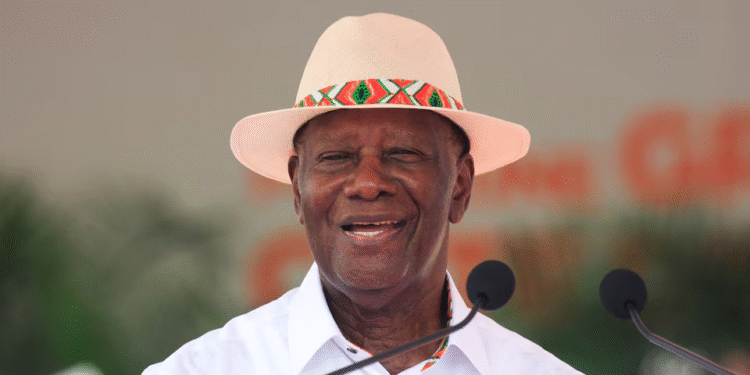Ivory Coast President Alassane Ouattara is set to contest a fourth term in office on Saturday, pledging to build on over a decade of economic growth, even as critics accuse his administration of suppressing opposition voices and tightening control ahead of the vote.

The 83-year-old leader faces three challengers — two former ministers and the ex-wife and former spokesperson of his predecessor, Laurent Gbagbo. With the backing of a dominant ruling party and deep political influence, Ouattara remains the clear frontrunner in the race.
However, the election has been marred by controversy after two major opposition figures, former President Gbagbo and ex-Credit Suisse CEO Tidjane Thiam were barred from running, a move Thiam described as turning the contest into “a coronation.”
A former IMF Deputy Managing Director and international banker, Ouattara first came to power in 2011 after a post-election civil war triggered by Gbagbo’s refusal to concede defeat. Since then, he has positioned Ivory Coast as one of Africa’s fastest-growing economies, boasting strong international bonds and significant infrastructure gains.
Government spokesman and former Prime Minister Patrick Achi said Ouattara’s administration “rebuilt the nation” after years of crisis. “The education system was down, health was down, roads were down — we had to rebuild the whole thing,”.

He added that a fourth term would focus on expanding private sector investment to create jobs for the 400,000 Ivorians graduating yearly, warning that failure to do so could pose “a threat.”
Yet, many Ivorians argue that the benefits of growth have not reached ordinary citizens. “The cost of living keeps rising while jobs go to government supporters,” said Dominique Yapo, a cooking gas vendor in Abidjan.
Supporters, however, point to stability under Ouattara’s rule in a region frequently shaken by military coups, including in neighbouring Niger and Guinea. “After the vote, everyone will be at the nightclub because there is peace here,” said Lacine Cisse, a civil servant at a pro-Ouattara rally.
Ahead of the polls, the government has deployed 44,000 security personnel nationwide and enforced what Amnesty International called a “disproportionate” ban on protests. Hundreds of opposition supporters have been arrested, with several sentenced to prison terms of up to three years for public order offences.
Justice Minister Sansan Kambile defended the restrictions, insisting they were temporary measures to maintain calm during the election period.
Ouattara’s re-election bid underscores the tension between Ivory Coast’s impressive economic recovery and the deepening concerns about democracy and political freedoms in one of West Africa’s most influential nations.









